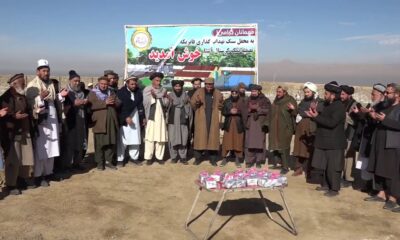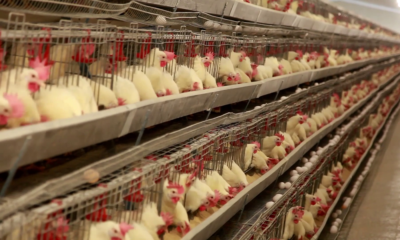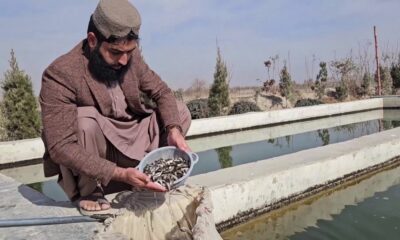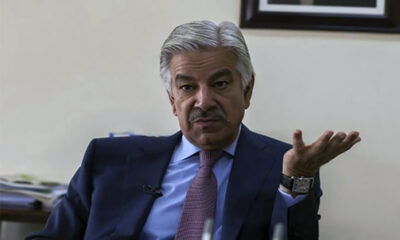Latest News
Imprisoning Afghans in Pakistan will undermine bilateral ties: Kabul
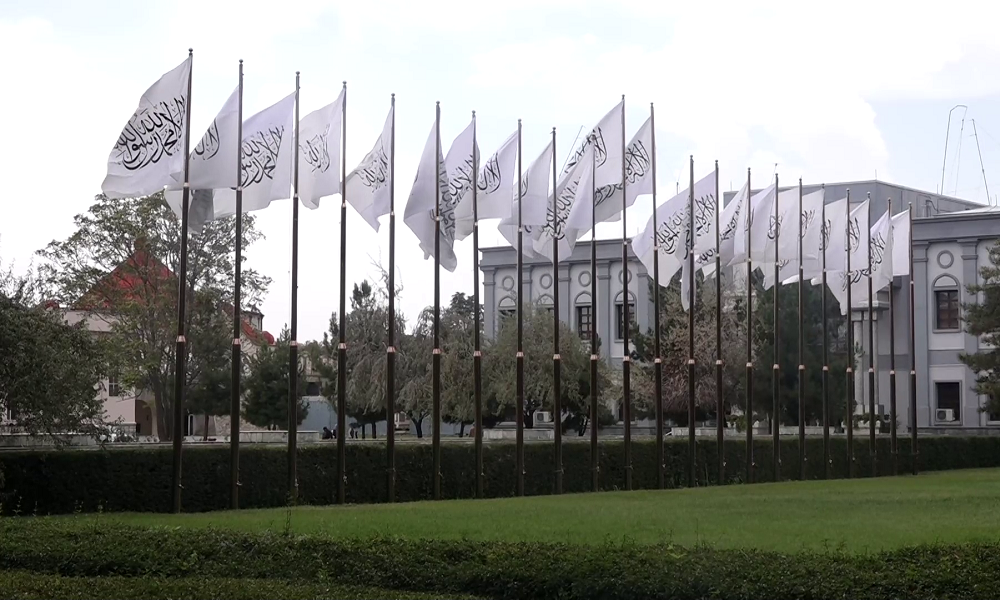
The foreign ministry of the Islamic Emirate of Afghanistan, in response to the imprisonment and torture of Afghans who reside in Pakistan, warns that this will deteriorate relations between the two countries.
In a statement, the foreign ministry said: “Imprisoning and torturing Afghans residing in Pakistan or traveling to this country, especially women, children, elderly and sick people, is very painful and does not have a good result for the relations between the two brotherly countries. It is necessary to release these prisoners as soon as possible.”
In a series of tweets, Afghanistan’s embassy in Islamabad has also stressed the release of Afghan prisoners from Pakistani prisons as soon as possible, adding that Pakistani officials have acted irresponsibly on their promises to release Afghans with the Afghan embassy and consulate in Islamabad.
“Until political stability and a strong government are established in Afghanistan, we should not complain about Pakistan and Iran because we could not build a safe home for our countrymen so that they do not migrate to foreign countries,” said Samad Karmand, a political expert.
The United Nations High Commissioner for Refugees (UNHCR) in Pakistan meanwhile has called the situation of Afghan prisoners in the province of Sindh, especially in the prisons of the city of Karachi, deplorable and emphasized their release.
“UNHCR is extremely concerned to see images and reports of the arrest and detention of Afghan refugees in Sindh province, particularly Karachi. Irrespective of their status, children and families should not be behind bars,” the organization tweeted.
Lack of legal residence documents is said to be one of the main reasons for the imprisonment of Afghan immigrants in Pakistan.
In a report, Pakistan's National Human Rights Commission said that at least 139 Afghan women and 165 children are being held in Karachi's women's prison along with other criminals.
Latest News
Salt refinery plant to be built in Takhar province

Local officials in Takhar province have announced the establishment of a major salt production and refining plant, with an investment worth 45 million AFN.
The new facility is expected to meet international standards and will have an annual production capacity of more than 100,000 tons of high-quality salt.
Abdul Rahman Ghaznawi, Head of Industry and Commerce in Takhar, commented on the project’s significance: "Today, we inaugurated a new salt refining factory here. We urge local traders not to relocate their investments abroad but to invest in building factories here. The government will fully support them."
The decision to build the plant was driven by the region’s lack of a salt refining facility and the improving security situation in Takhar, according to company officials. The new plant is poised to address this gap while ensuring the production of premium-quality salt for both domestic use and export.
Mohammad Nabi Mansour, head of the salt refining company, reassured potential investors: "We guarantee full security in the region, and there are no issues hindering investment. We are confident this is a solid opportunity and are working with our partners with full trust."
Local residents of Takhar are calling on other investors to consider contributing to the country's self-sufficiency by investing in various sectors, especially in Takhar.
Notably, Takhar is rich in natural mineral resources, and investments in the province have the potential to boost production, which could then be exported to neighboring countries, particularly Tajikistan.
Latest News
Ministry: $1 billion invested in Afghanistan’s poultry production sector

Officials from the Ministry of Agriculture, Irrigation, and Livestock (MAIL) have revealed that over one billion dollars have been invested in the poultry production sector across Afghanistan.
According to the ministry, investment in this sector continues to rise, with approximately 15,000 poultry farms currently operating nationwide.
Misbahuddin Mustain, spokesman for MAIL, said: "At present, around 15,000 poultry farms are actively operating throughout Afghanistan, collectively valued at over one billion dollars."
However, despite this significant investment, the Chamber of Agriculture and Livestock notes that Afghanistan has not yet achieved self-sufficiency in poultry production.
"The poultry sector has significantly reduced imports and stopped importing old chickens into the country. We support this sector. Currently, egg imports are ongoing due to a shortage of eggs,” said Mirwais Hajizada, deputy head of the Chamber of Agriculture and Livestock.
Economic experts believe there is substantial potential for further investment in the poultry industry, stressing that continued growth is essential for the country to reach full self-sufficiency.
Despite the ongoing investments, Afghanistan imports chicken and eggs from neighboring countries. Industry officials are urging the government to focus on expanding the sector, to transform Afghanistan into an exporter of poultry products in the near future.
Latest News
Declining water levels affect 50 percent of fish farms in Kandahar

Fish farmers in Kandahar say that the water level in the province has decreased significantly and the problem has affected 50 percent of fish farms in the southern Afghan province.
Mohammad Ibrahim, head of the Kandahar Fish Farmers’ Union, says: “The number of farms has decreased by 50 to 60 percent. In the past, there were up to 1,800 farms, but now there are about 250 active farms left. There are also inactive farms, but their number is small.”
Fish farmers call for building dams to divert water. They say that surface water should be used for raising fish, not groundwater.
Toryalai, a farmer in Kandahar, says: “Drought has made fish farms very dry. The water level has decreased a lot and this problem has affected the farmers.”
Meanwhile, officials of the Directorate of Agriculture, Irrigation and Livestock of Kandahar province say fish farmers have been provided with necessary assistance.
Toryalai Agha, Director of the Livestock Promotion Department of the Department of Agriculture and Livestock of Kandahar province, says: “Some NGOs have helped them and have provided them with equipment and fish farming training programs.”
Based on information from officials of the Directorate of Agriculture, Irrigation and Livestock of Kandahar province, about 152 large and 700 small fish farming farms are operating in the province, producing 700 kilograms of fish daily.
-
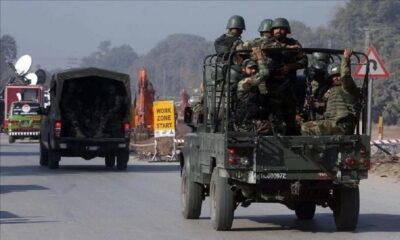
 Latest News5 days ago
Latest News5 days agoPakistani media confirm death of one soldier, wounding of 11 others in firing by Afghan forces
-
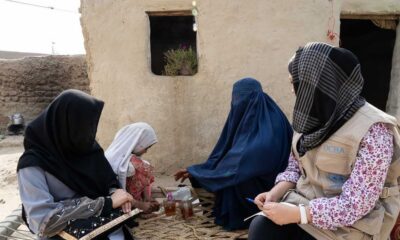
 Latest News5 days ago
Latest News5 days agoIEA warns of suspension for NGOs failing to stop women from working
-
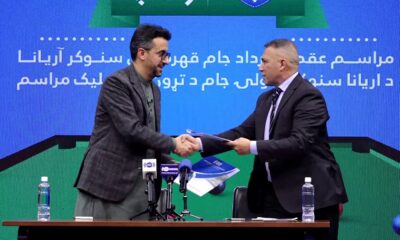
 Latest News4 days ago
Latest News4 days agoAriana Television to produce and broadcast Ariana Snooker Championship in February
-

 Sport3 days ago
Sport3 days agoRecord day for Afghanistan but test ends in a draw
-
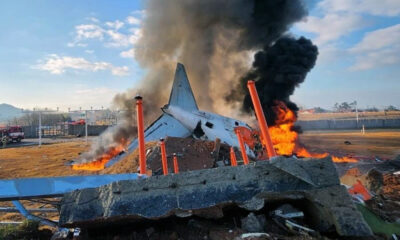
 World5 days ago
World5 days agoFiery plane crash kills 179 in worst airline disaster in South Korea
-

 Regional5 days ago
Regional5 days agoSuicide bomber kills police commander in southern Iran – media reports
-

 Latest News3 days ago
Latest News3 days agoSouth Korea pledges $5 million to support vulnerable families in Afghanistan
-
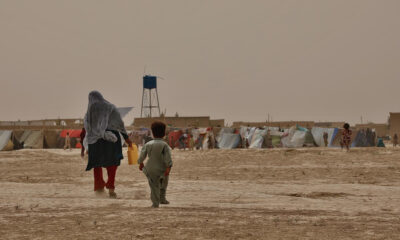
 Latest News4 days ago
Latest News4 days ago4,000 Children from Syria, Afghanistan, Morocco sought protection in Bulgaria in 2024: UNICEF


